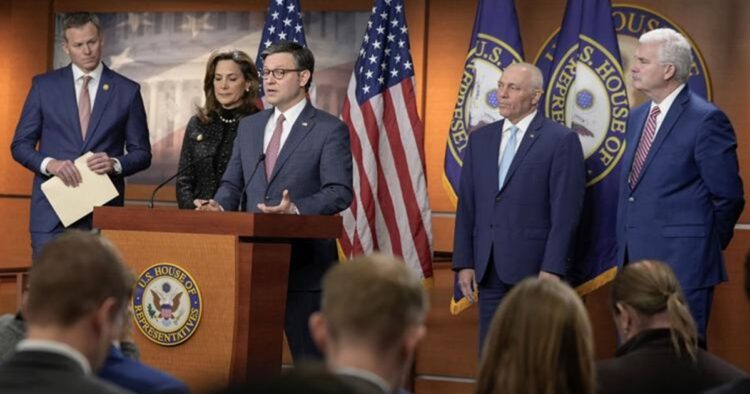In a recent decision, the House of Representatives turned down a proposal to add a warrant requirement to a significant U.S. government surveillance tool. This proposal, which aimed to reform and extend a part of the Foreign Intelligence Surveillance Act (FISA) called Section 702, was brought forward by Republican Speaker Mike Johnson. Despite efforts to revise the proposal and shorten the reauthorization period to two years, it failed to gain enough support.
The revised proposal was introduced with hopes of appealing to GOP critics by limiting the reauthorization period to two years. This would have shifted any future debate on the issue to the potential presidency of Donald Trump if he were to regain the White House. However, the proposal was ultimately rejected by the House.
A separate provision, seeking to end warrantless surveillance of Americans, was also proposed but did not garner enough votes to pass. Now, the bill moves to the Senate where its fate remains uncertain. If no action is taken, the program is set to expire on April 19.
Skepticism surrounding the government’s surveillance powers has grown significantly in recent years, particularly among Republicans. Divisions within the party regarding the overhaul of the FISA surveillance program became evident, with 19 Republicans breaking ranks to prevent the bill from advancing in the House.
Despite opposition, some conservative lawmakers found the shortened two-year timeframe more acceptable, believing it allows for better evaluation of the proposed reforms. However, far-right opponents argue that the reforms do not go far enough in protecting civil liberties.
The legislation under consideration permits the U.S. government to collect communications of non-Americans outside the country without a warrant for foreign intelligence purposes. However, concerns persist regarding the collection of data on Americans and potential abuses by the FBI in querying the intelligence repository.
Former President Donald Trump and bipartisan critics have raised concerns about the misuse of surveillance tools. Trump claimed that Section 702 was illegally used against his presidential campaign, sparking calls to reform or abolish the program.
Efforts to secure reauthorization have faced pushback, with demands for stricter oversight and protections for Americans’ privacy. FBI Director Chris Wray has cautioned against imposing a warrant requirement, arguing it would hinder the program’s effectiveness.
As the debate continues, the future of the surveillance program remains uncertain, with implications for national security and civil liberties.

















Comments